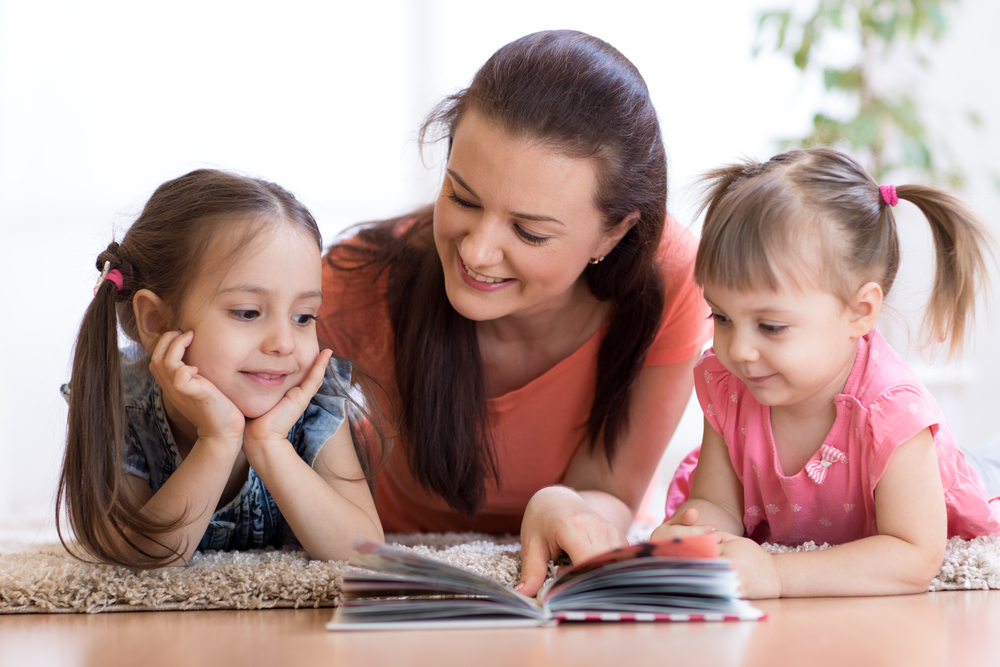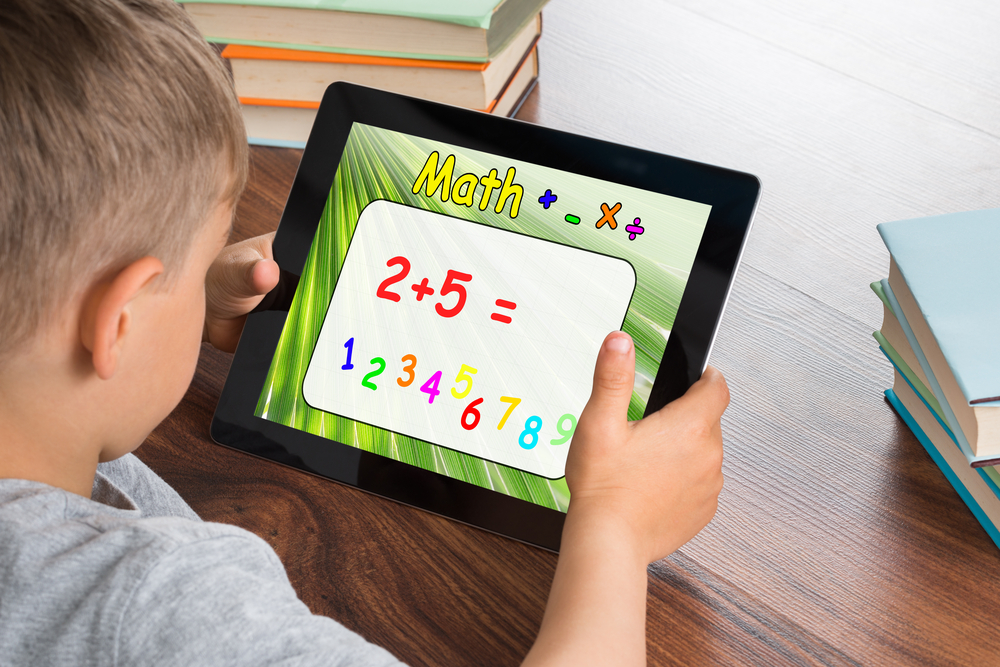Cognitive Development Reading Comprehension Worksheets for 6-Year-Olds
7 filtered results
-
From - To
Enhance your 6-year-old's cognitive development with our engaging reading comprehension worksheets! Designed specifically for early learners, these worksheets encourage critical thinking, reasoning, and problem-solving skills. Each activity combines fun and education, fostering a love for reading while helping children understand and analyze texts. With a variety of themes and formats, kids will enjoy exploring stories and answering questions that boost their comprehension abilities. Perfect for home or classroom use, our worksheets facilitate a supportive learning environment, making literacy exciting. Start your child's journey to becoming a confident reader today with our comprehensive collection of cognitive development resources!
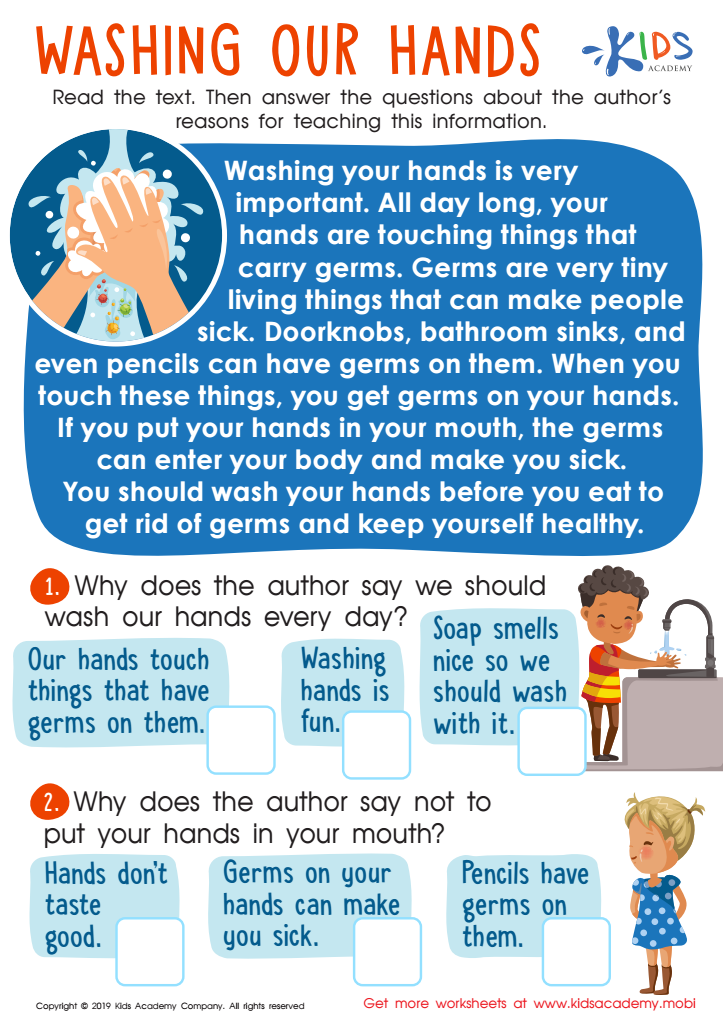

Washing Our Hands Worksheet
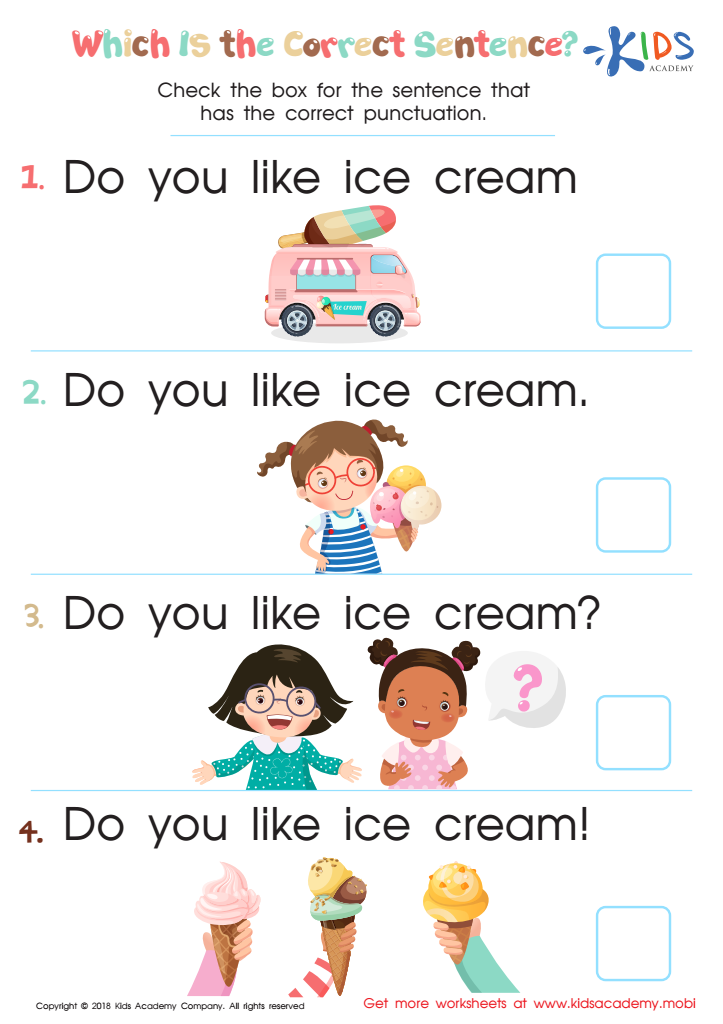

Which is the Correct Sentence? Worksheet
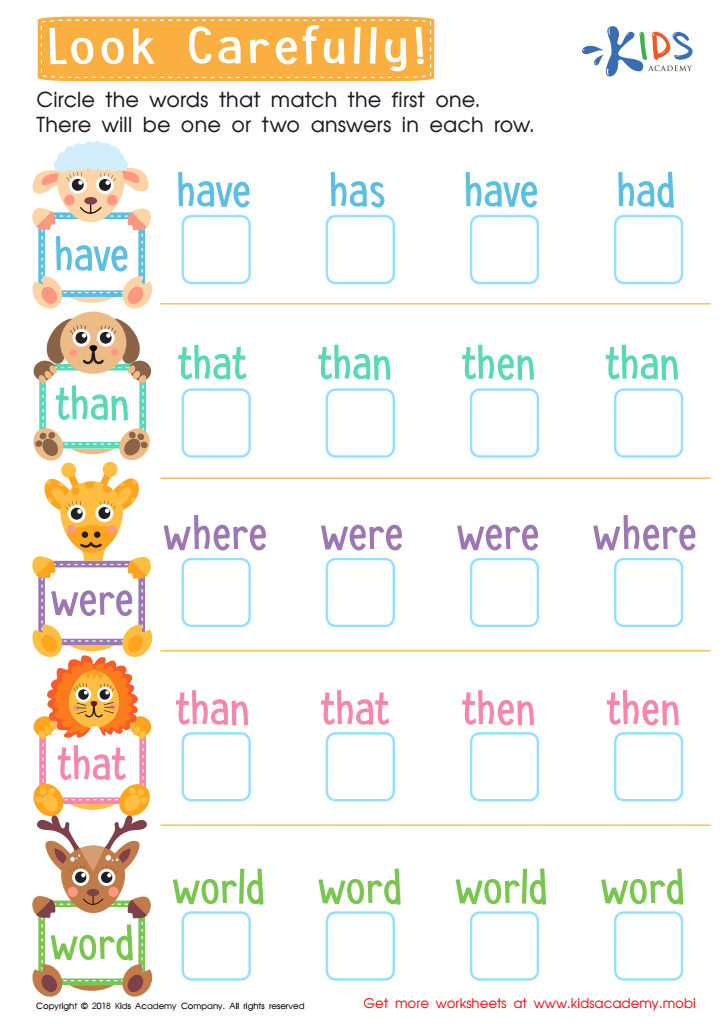

Look Carefully Worksheet
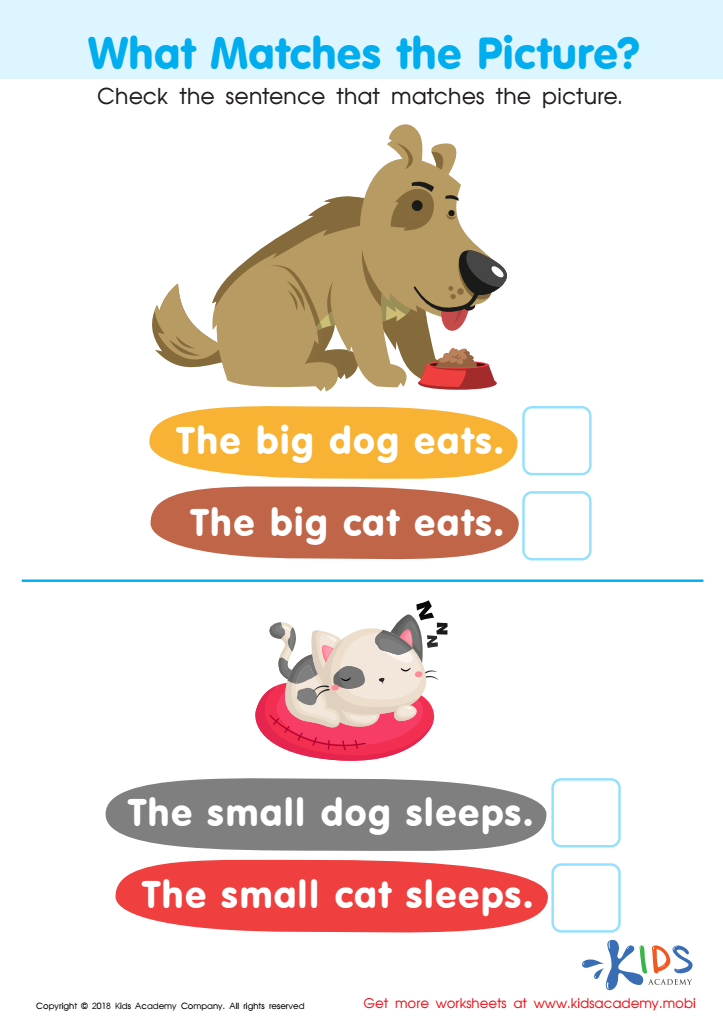

What Matches the Picture? Worksheet
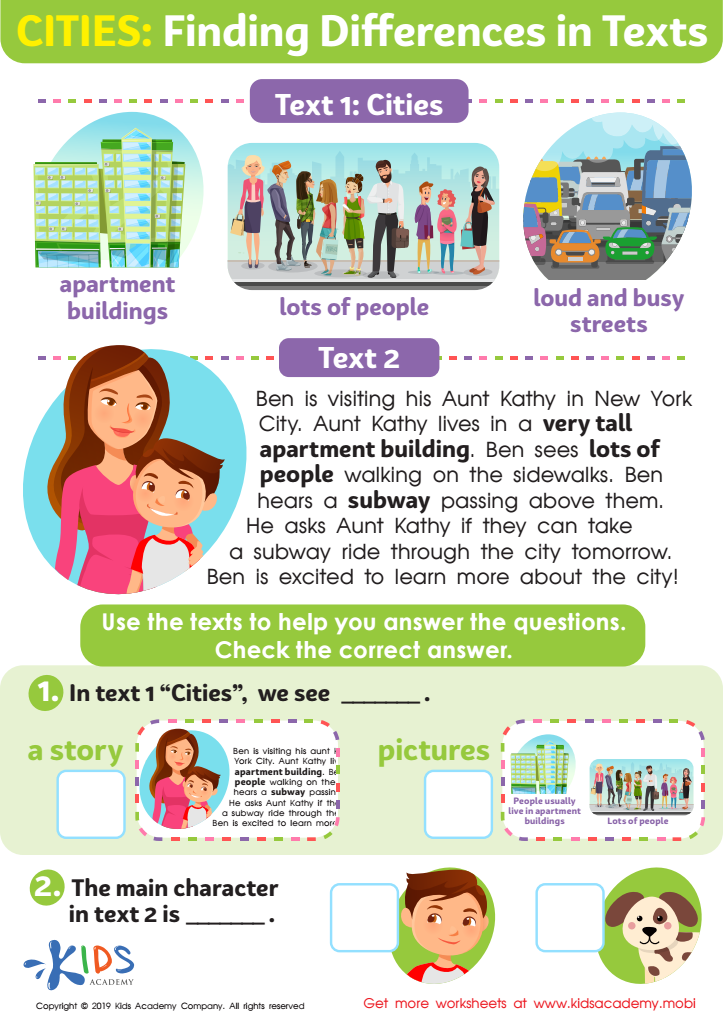

Cities: Finding Differences Worksheet
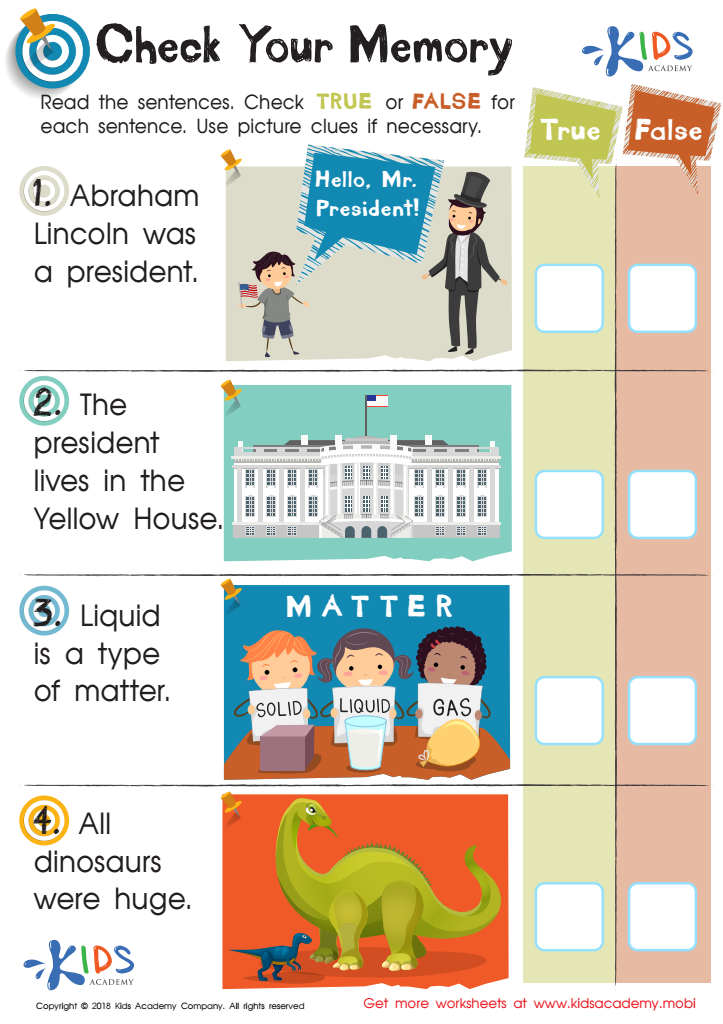

Check Memory Worksheet
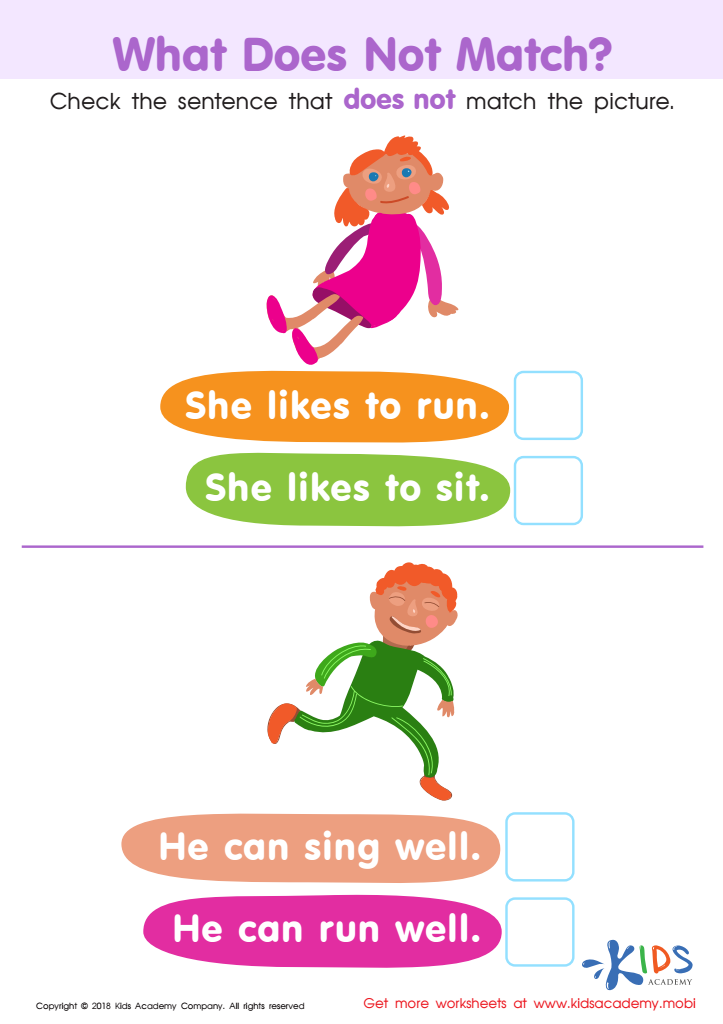

What Does Not Match? Worksheet
Cognitive development and reading comprehension are fundamental aspects of a child's early education, particularly for 6-year-olds, who are typically at a critical stage for literacy skills. Parents and teachers play vital roles in nurturing these skills, as they form the foundation for future academic success and lifelong learning.
At this age, children are developing the ability to connect letters and sounds, understand word meanings, and grasp story structure. Improved reading comprehension supports vocabulary expansion, enhances critical thinking abilities, and increases a child's confidence in academics. When children comprehend what they read, they engage with the text more meaningfully, making connections to their own experiences and expanding their understanding of the world.
Cognitive development during this time also affects social skills, emotional regulation, and problem-solving abilities. Activities that promote reading comprehension, such as discussing stories, asking open-ended questions, and encouraging imaginative play, contribute significantly to a child's overall cognitive growth.
Ultimately, parents and teachers should care about enhancing reading comprehension in young children to establish a solid groundwork for future learning, foster a love for reading, and encourage curiosity, paving the way for a well-rounded educational experience.
 Assign to My Students
Assign to My Students








